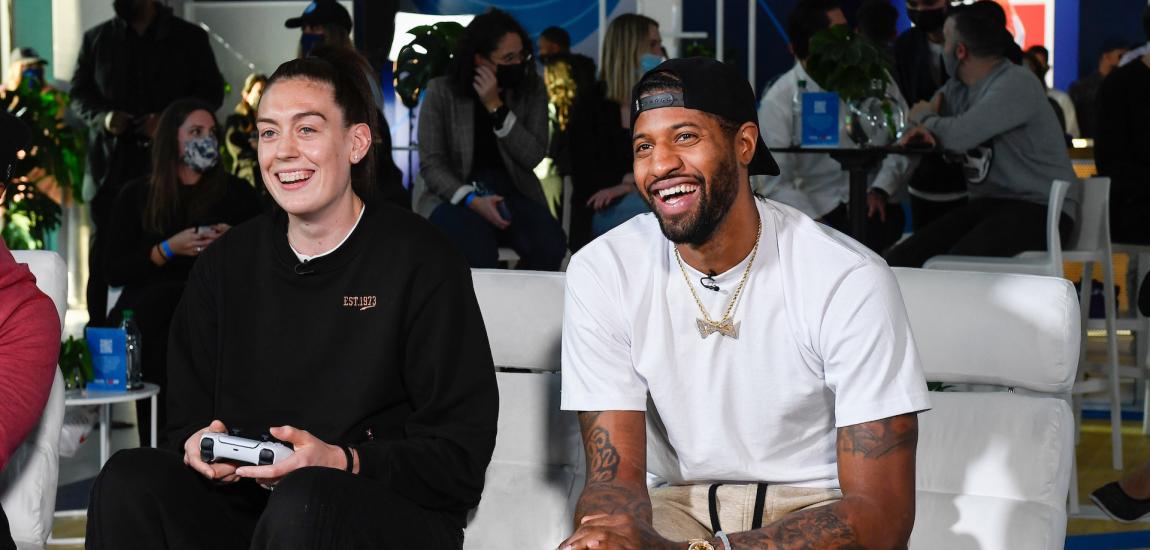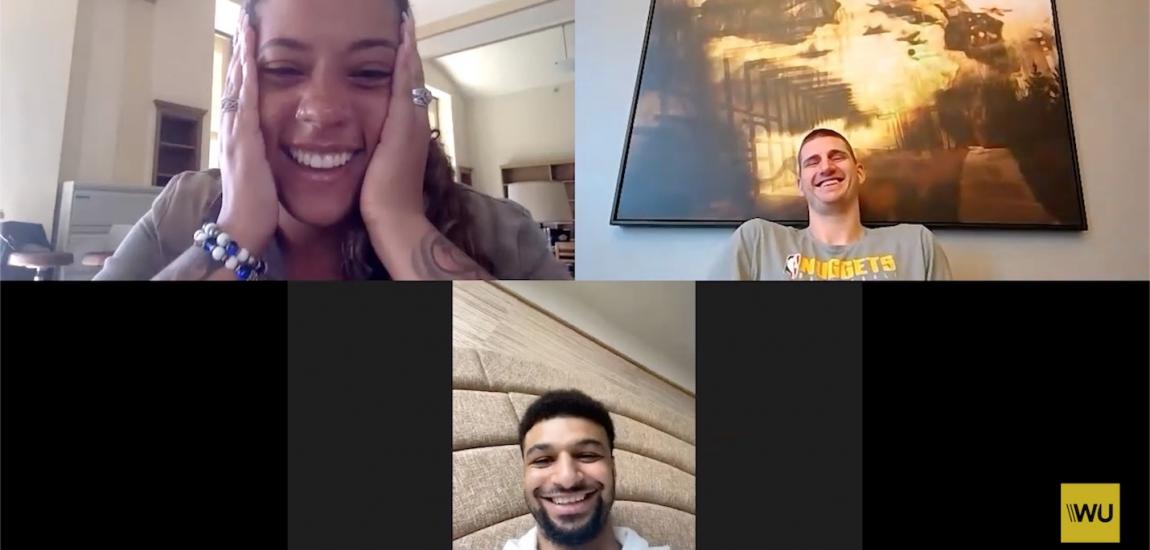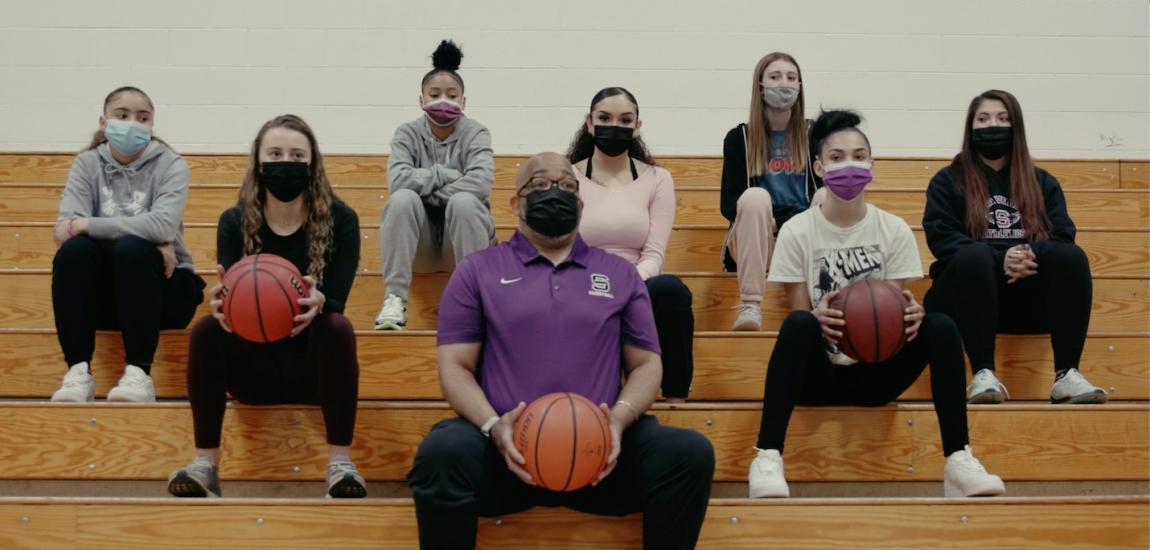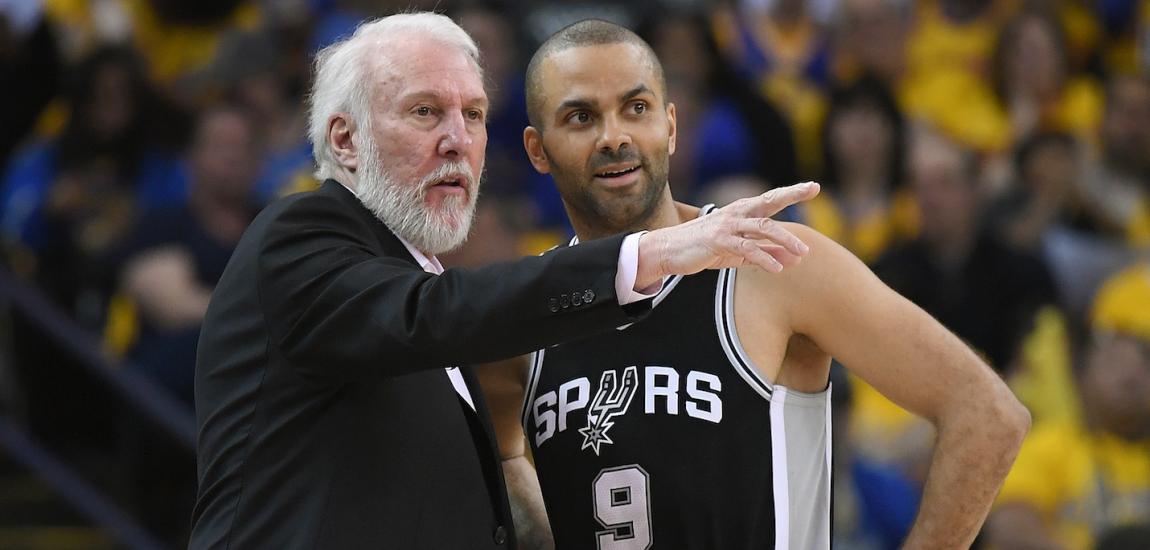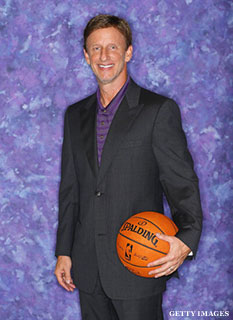
Mark Mastrov has been a pioneer in the exercise industry, first as founder of the 24 Hour Fitness chain and now as a partner in the UFC brand of gyms. He is also one of the principals in the Sacramento Kings' new ownership group, and for that, Warriors icon Rick Barry earns an assist on the play, even if it took more than 45 years to develop.
Growing up in the Bay Area, Mastrov was a huge Warriors fan. When he was 8, he went to his first basketball camp, which Barry ran.
"I remember showing up at the camp excited, all ready to play," Mastrov said. "On the very first day, Rick Barry picked me out to do one of the drills. I was so excited to be on the court with Rick Barry. Then I remember sitting down and Rick addressing all the kids at the camp. He said, 'I just want everybody here to know right off the top that not a single one of you will ever make the NBA.' That was the shattering of my dreams that day."
It was a reality check that stuck with him.
"As a kid who thought he might make it to the NBA one day, Rick made it very clear, and rightfully so as I found out later, that I had no shot," Mastrov said. "I'll never forget that. I came home that night and my dad said, 'How was the camp?' I was like, 'Well, it was good, but Rick told me I'll never be in the NBA.'"
That's when his father, Bert, who had imparted the love of basketball on Mastrov, also gave him a business inspiration.
"Don't let him take your dream away, son," Mastrov recalled his father saying. "Maybe some day you can be an owner of a team."
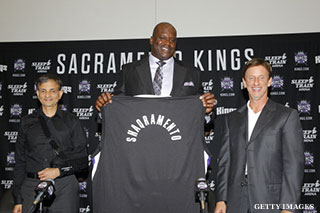
Mastrov's group, which is headed by tech titan Vivek Ranadive, took over the Kings in a $534 million deal that closed on May 31. Mastrov's fitness background has already been a factor. Before selling 24 Hour Fitness for $1.6 billion in 2005, Mastrov worked with Shaquille O'Neal on creating 10 signature clubs, mostly in Florida. Shaq used to work out at 24 Hour Fitness when he played in Los Angeles, but after the Lakers traded him to Miami in 2004, he couldn't find a gym open at all hours in South Florida. He connected with Mastrov to fill that gap.
In June, Mastrov and Randive had a meeting with Shaq in California. Afterwards, Shaq said he was going to mentor for the Kings' talented but troubled young center, saying he was ready to "make DeMarcus Cousins the best big man in the game."
That headline turned out to be just a sidebar as the Kings announced in September that Shaq has bought a small ownership stake in the franchise.
"When Mark introduced me to Vivek, we had a wonderful conversation," Shaq told USA Today. "I've always prided myself by interacting with great leaders and great businessmen."
Mastrov should have a particular affinity for big men since his dad played college basketball at Cal under legendary coach Pete Newell in the mid-50s. Years later, Newell ran a Big Man Camp every summer to school even NBA stars on the finer points of post play. The camp's list of alumni includes Shaq. This background gives you the sense that Mastrov has an appreciation and an understanding of the game beyond that of just an investor, albeit an enthusiastic one.
"I always heard that from my dad that 'we never lost to John Wooden,'" he said. "I was always like, 'yeah, right, Dad, c'mon. John Wooden is the greatest coach of all time.' But I had a chance to meet Coach Wooden and sit down with him a few hours. I remember asking him about Pete Newell: 'I always heard from my father that you had a hard time beating Pete Newell in your early days.' Coach Wooden was very gracious and said, 'That man taught me a lot about basketball. The full-court press and a lot of things that became UCLA basketball. Pete Newell was great, great coach.'"
Perhaps it is a good omen for Sacramento fans that Mastrov has these hoops connections with Barry and Newell. After the Bill Russell era at the University of San Francisco, there have been just two major basketball champions from Northern California: Cal's 1959 NCAA title team coached by Newell, and the 1975 Warriors who won the NBA title with Barry leading the way. (If you want to include the Oakland Oaks that won the 1969 ABA title, Barry was part of that team too.)
"The goal here is to build a great senior management team and over time a great organization," Mastrov said of running the Kings. "Enhance the culture, leading into a new stadium that we're hoping to have open in the next 3-4 years. We've got a great ownership group led by Vivek. We've got some amazing partners. And it's going to be a fun run."
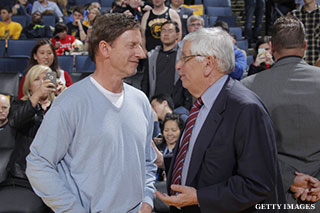
Given Mastrov's access to the best trainers in the world, it would be no surprise that the Kings will look to use those connections to gain a competitive advantage on the court. Mastrov didn't want to give away any secrets but said, "We will definitely be leveraging this aspect of what I have learned worldwide."
Mastrov figures to be plenty busy with the Kings added to his full plate of fitness endeavors, but that's nothing new for a man who reportedly logged 110-hour work weeks in the early days of 24 Hour Fitness. He borrowed $15,000 from his grandmother to buy a 10 percent in a health club in San Leandro, Calif., and parlayed that into the 24 Hour Fitness chain.
One of Mastrov's innovative moves to build the customer base at 24 Hour Fitness was introducing the system of monthly dues paid automatically by a bank account or credit card. Such a practice is now standard. But at the time, the prevailing practice in the industry had been contracts that sometimes required a three-year commitment. The month-by-month approach gave the customer flexibility and also incentivized the club to keep its members happy.
He also understood the opportunity to build the fitness industry from the ground floor in emerging markets such as Russia after the fall of the Soviet Union. He continues with that approach in other parts of the world where there is a need to develop these fitness resources.
"In the U.S., fitness is only penetrated to about 15 or 16 percent of the population in terms of gym membership," he said. "In a lot of countries, it's less than 3 or 4 percent. You say why, and a big part of it that the gyms haven't been built yet. There is demand to a certain degree. Like Mexico, for example, the pollution is so high that running outside or any kind of physical activity outside is not desirable so they try to push everybody inside. But there's not a lot of facilities for people to access and use. So there's a dichotomy to a certain degree."

After leaving 24 Hour Fitness, Mastrov and some partners created New Evolution Ventures. Its projects includes working with UFC on its brand of gyms and with Madonna on a premium lifestyle fitness brand called Hard Candy. The boom in the popularity of UFC, and MMA in general, has opened up a different way of approaching -- and selling -- fitness.
"If you look at the history of mixed martial arts, it has been a very popular training method for generations," he said. "Boxing, Muay Thai, wrestling, kickboxing, karate -- martial arts of all types have been around in small studios, 1,200 square feet to 5,000 square feet, for a long time all over the country. But it had never been scaled. What we did in partnering with UFC is kind of put that on its head. So we took traditional fitness and then brought in mixed martial arts with all these disciplines and built it into a 40,000 to 50,000 square foot facility and made it affordable to everybody."
He and his wife, Mindee (a Muay Thai enthusiast), have children ages 11, 10, 8 and 5, and creating a family-friendly vibe for the UFC gyms was a big factor in how they operate.
"In a traditional gym it is difficult to bring your kids in to work out with you," he said. "In UFC, kids are welcome because they can come in and train in mixed martial arts, train alongside their mother and father or straight up with children their age or age group. It's unique and different in marketplace, and people are responding very favorably."
UFC has been effective in the anti-bullying movement because it teaches youngsters self-defense. But Mastrov said MMA training also works from the opposite side of the street because it can instill a respect that prevents someone from becoming a bully.
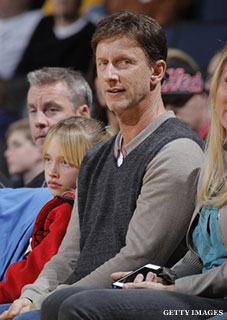
"We've heard from a lot of parents that when they sign them up to make mixed martial arts, they thought the kids would learn how to take care of themselves, protect themselves," he said. "Instead, they found kids were coming home and making their beds and clearing the table at dinner and taking the garbage out. They became more disciplined around the tasks of the family because that's something we assigned everybody. They became more respective of their peers, siblings and others.
"Anyone who has taken martial arts knows that. We tell the kids you have to go home and thank your mother for buying my membership and thank you for bringing to the gym. That's what they have to do to get their next belt. That, and doing chores without complaining."
Enjoying a strong family dynamic resonates with Mastrov, because he still remembers when Rick Barry crushed his hopes of being an NBA player, it was his dad who gave him a new inspiration of becoming an owner.
"So that became my dream," Mastrov said. "It took a while, but I finally got there."

